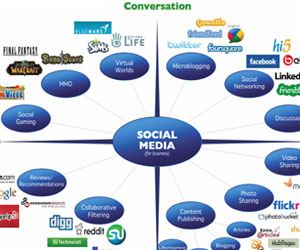



In today's ever-evolving digital landscape, affiliate marketing has emerged as a promising avenue for individuals seeking income and businesses aiming to expand their online presence. But what makes this business model particularly relevant in the current era is its compatibility with remote work. Affiliate marketing has seamlessly integrated into the world of remote work, offering flexibility, scalability, and lucrative opportunities for both marketers and brands.
Affiliate marketing, at its core, involves promoting products or services and earning commissions for every successful sale or action driven by your marketing efforts. What's distinctive about affiliate marketing in the era of remote work is how it aligns perfectly with the changing work dynamics and digital trends. Here's why it's such a compelling choice for remote workers:
Location Independence: One of the key advantages of affiliate marketing is that it doesn't require a physical presence. Marketers can operate from anywhere in the world, making it an ideal choice for those who prefer remote work. Whether you're working from the comfort of your home, a co-working space, or a beachside café, you can manage your affiliate marketing efforts as long as you have an internet connection.
Flexible Hours: Remote work and affiliate marketing both offer flexible schedules. This means you can manage your affiliate marketing campaigns and activities at a time that suits you best. It's an excellent option for people who want to balance work with other commitments or those who prefer working during unconventional hours.
Low Overheads: Running an affiliate marketing business typically involves minimal overhead costs. You don't need to invest in physical infrastructure or hire employees. This makes it a cost-effective choice for remote workers, as it allows them to keep more of their earnings.
Diverse Income Streams: With the ever-expanding array of products and services available online, affiliate marketers can diversify their income streams by promoting products from different niches. This diversity can be especially advantageous for remote workers, as it offers a safety net in times of market fluctuations.
Scalability: Affiliate marketing can be as small or as large as you want it to be. Whether you're looking for a side hustle to complement your full-time job or aiming to build a significant source of income, the scalability of affiliate marketing makes it adaptable to your goals.
Digital Skill Set: Remote work often requires digital skills, and affiliate marketing complements this requirement. Marketers must be proficient in various digital tools, analytics, and content creation, making it a perfect match for those accustomed to remote work's tech-savvy environment.
The synergy between affiliate marketing and remote work is undeniable. It empowers individuals to build sustainable income sources, fosters a sense of independence, and aligns with the modern work model. As remote work continues to gain popularity, the affiliate marketing industry is likely to see further growth and innovation, creating new opportunities for digital entrepreneurs.
Affiliate marketing in the era of remote work is not just a trend but a dynamic, mutually beneficial partnership. It empowers remote workers to embrace their independence and leverage digital platforms to generate income, while brands gain a cost-effective and performance-based marketing channel. This union of convenience and profitability underscores the enduring relevance of affiliate marketing in the contemporary work landscape.


 2. Knowledge Acquisition: One of the primary purposes of a comprehensive guide is knowledge acquisition. It allows individuals to delve deep into a subject matter, gaining a comprehensive understanding that may not be possible through shorter articles or videos. Comprehensive guides provide the opportunity to become an expert in a specific domain.
2. Knowledge Acquisition: One of the primary purposes of a comprehensive guide is knowledge acquisition. It allows individuals to delve deep into a subject matter, gaining a comprehensive understanding that may not be possible through shorter articles or videos. Comprehensive guides provide the opportunity to become an expert in a specific domain.
3. Skill Development: For individuals looking to acquire new skills, comprehensive guides offer step-by-step instructions and practical tips. Whether it's learning a musical instrument, mastering a programming language, or honing culinary skills, a comprehensive guide provides the foundation for skill development.
4. Project Management: When tackling complex projects, a comprehensive guide can be an indispensable tool. It helps individuals and teams plan, execute, and complete projects with efficiency. Comprehensive project management guides often cover everything from initiation to closure.
5. Problem Solving: For troubleshooting and problem-solving, a comprehensive guide can be a lifesaver.
Unlocking Success
 3. Precision And Quality: Essential tools often provide a level of precision and quality that is challenging to achieve without them. From high-quality power tools for woodworking to advanced software for graphic design, these tools contribute to the precision and excellence of work.
3. Precision And Quality: Essential tools often provide a level of precision and quality that is challenging to achieve without them. From high-quality power tools for woodworking to advanced software for graphic design, these tools contribute to the precision and excellence of work.
4. Cost Savings: While essential tools may require an initial investment, they often result in cost savings in the long run. By streamlining processes and reducing the need for manual labor, these tools can lead to significant cost efficiency.
5. Versatility: Many essential tools are versatile, capable of performing various functions. This versatility can be especially valuable for individuals and businesses that need to adapt to changing circumstances and demands.
6. Time Savings: Essential tools can dramatically reduce the time required to complete tasks. In professional settings, time savings translate to increased productivity and the ability to take on more projects or serve more clients.
7. Precision And Accuracy: In fields where precision and accuracy are paramount, essential tools are irreplaceable. Whether it's a surgeon's scalpel, a surveyor's level, or a programmer's coding software, these tools ensure that critical work is done correctly.
8. Innovation And Creativity: Tools that are specifically designed for creativity, such as art supplies, musical instruments, and software for design, foster innovation and enable individuals to express their creativity in unique ways.
Enhancing Success In A Mobile-First World
 1. Mobile-First Design
1. Mobile-First Design
To excel in mobile marketing, it's essential to adopt a mobile-first approach to design. Your website, landing pages, and digital content should be created with mobile users in mind from the outset. This ensures that your online assets are optimized for mobile viewing, with responsive design and fast-loading pages.
2. Performance Optimization
Mobile users are notoriously impatient, and a slow-loading website can lead to high bounce rates. Optimizing the performance of your mobile site includes compressing images, minimizing code, and using content delivery networks (CDNs) to speed up the delivery of content to users' devices.
3. Responsive Email Marketing
Email marketing is a crucial component of many mobile marketing strategies. Ensure that your email campaigns are responsive, meaning they render well on various screen sizes. Optimize subject lines, preheaders, and email content to capture users' attention quickly.
4. Mobile SEO
Mobile search engine optimization (SEO) is essential for visibility in search results. Optimize your website and content for mobile search engines. Pay attention to factors like mobile-friendly design, page load speed, and local SEO to improve your mobile search rankings.






 3. Social Proof And Authority: The psychology of persuasion tells us that people are more likely to act when they see that others have already done so. Demonstrating social proof, such as showcasing customer reviews, testimonials, or displaying trusted industry authority endorsements, can make your offer more compelling.
3. Social Proof And Authority: The psychology of persuasion tells us that people are more likely to act when they see that others have already done so. Demonstrating social proof, such as showcasing customer reviews, testimonials, or displaying trusted industry authority endorsements, can make your offer more compelling.
4. The Power Of Personalization: Tailoring your offer to individual preferences and needs is a psychological strategy that plays a pivotal role in capturing attention. Personalization makes potential customers feel seen and understood, leading to a stronger emotional connection with your offer.
5. Anchoring And Framing: The way an offer is presented can significantly impact how it's perceived. Anchoring refers to the idea that people tend to rely heavily on the first piece of information they receive when making decisions. Framing involves how the same information can be presented positively or negatively. For instance, positioning a discount as "Save $50" versus "50% off" can yield different responses.
6. Emotional Appeal: Human decision-making is heavily influenced by emotions. Creating offers that evoke positive emotions, such as joy, excitement, or satisfaction, can make them more appealing. On the other hand, offers that alleviate negative emotions, such as fear or anxiety, can also be compelling.
The Evolution Of Work Environments
 The Shift To Remote Work: The advent of digital technology and high-speed internet connectivity brought about a monumental shift in work environments. Remote work, or telecommuting, became a viable option for many industries. This transition allowed employees to work from the comfort of their homes, reducing commute times and providing a degree of flexibility previously unheard of. Remote work gained further traction during the COVID-19 pandemic when organizations around the world had to adapt to lockdowns and social distancing measures.
The Shift To Remote Work: The advent of digital technology and high-speed internet connectivity brought about a monumental shift in work environments. Remote work, or telecommuting, became a viable option for many industries. This transition allowed employees to work from the comfort of their homes, reducing commute times and providing a degree of flexibility previously unheard of. Remote work gained further traction during the COVID-19 pandemic when organizations around the world had to adapt to lockdowns and social distancing measures.
Coworking Spaces And Flexible Offices: Coworking spaces emerged as a response to the desire for a balance between the structure of traditional offices and the autonomy of remote work. These shared workspaces offer individuals and organizations a more flexible, communal, and cost-effective alternative. They provide a sense of community, access to amenities, and an environment conducive to productivity.
Flexible office solutions have also become popular, allowing businesses to rent office space on a short-term basis, scaling up or down as needed. This flexibility is particularly attractive to startups, small businesses, and companies looking to reduce overhead costs.